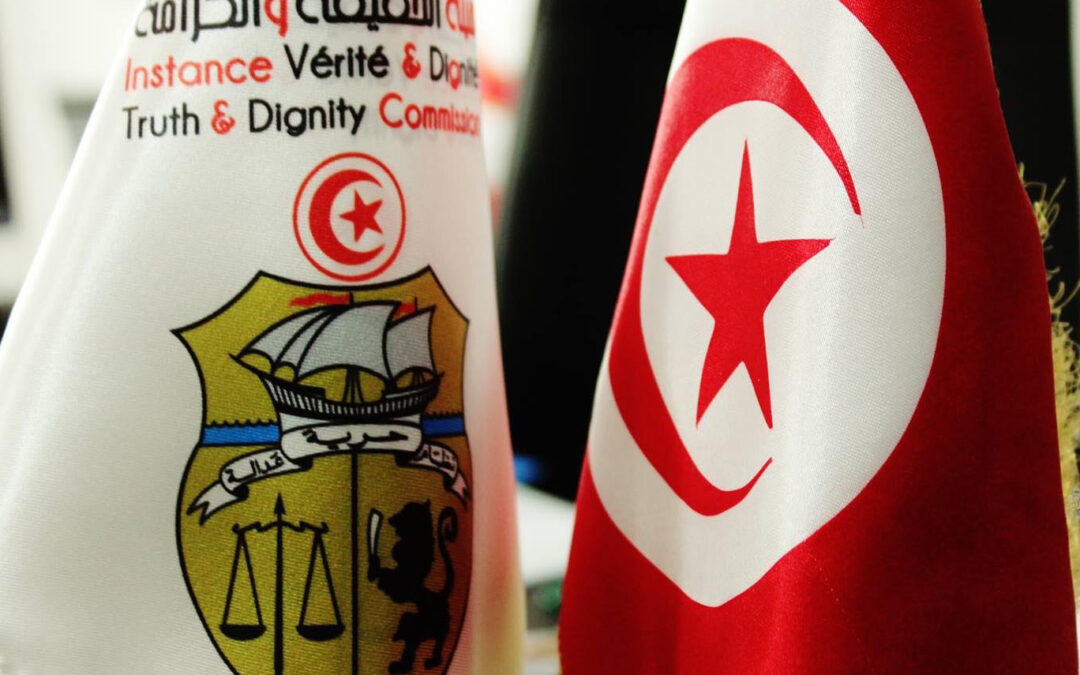
Mar 6, 2018 | News
The ICJ today welcomed the first referral of allegations of gross human rights violations to the recently constituted Specialized Criminal Chambers (SCC) at the Tribunal of First Instance of Gabés.
On 2 March 2018, the Truth and Dignity Commission (“Instance Vérité et Dignité”, IVD) transferred a case concerning 14 suspects and the crime of enforced disappearance to the SCC, established to bring justice and accountability for the legacy of serious human violations allegedly committed in Tunisia from 1 July 1955 to 31 December 2013.
“The IVD’s decision is an important first step in the process of ensuring accountability and dismantling the structural impunity that has prevailed over cases of gross violations of human rights in Tunisia,” said Said Benarbia, Director of the ICJ Middle East and North Africa Programme.
“We call on the responsible Tunisian authorities to fully support this process and remove the obstacles that continue to impede the IVD’s work, including by ensuring its full, rapid and unimpeded access to archives and to information related to the conduct of police and security forces under the former regime,” he added.
The ICJ also reiterated its previous call on the Tunisian authorities to remove the legal and practical obstacles that may hinder the SCC’s capacity to deliver justice effectively.
In two memos addressing the jurisdiction and the procedures to be applied by the SCC, the ICJ identified such obstacles and formulated recommendations for amendments and reform.
“The Government must reform the legal framework and procedures to be applied by the SCC so that they can effectively exercise their jurisdiction, establish the truth about past violations, hold those responsible to account, and deliver meaningful justice and reparation for victims,” Benarbia said.
Contact
Said Benarbia, Director of the ICJ Middle East and North Africa Programme, t: +41 798783546, e: said.benarbia(a)icj.org
Background
The SCC were formally established by Decree No. 2014-2887 of 8 August 2014 and have been set up within the Tribunals of First Instance of thirteen Courts of Appeal.
Under article 8 of the 2013 Transitional Justice Law, the SCC have jurisdiction over cases related to gross violations of human rights, as defined in international treaties applicable to Tunisia and in the provisions of the 2013 Law, involving “murder, rape and other forms of sexual violence, torture, enforced disappearances, and death penalty without fair trial guarantees”.
The 2013 Law attributes a leading role to the IVD with respect to how cases are brought before the SCC. According to article 42 of the 2013 Law, the IVD refers to the Office of the Public Prosecutor (OPP) “cases where gross human rights violations are proven”. As of 15 June 2016, the deadline for victims to submit files, the IVD has received over 60000 cases.
Tunisia-SSC disappearances-News-2018-ARA (full story in Arabic, PDF)
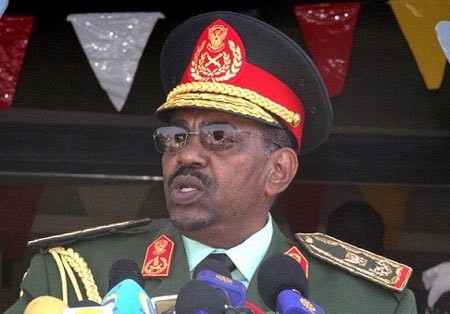
Feb 27, 2018
An opinion editorial by Tim Fish Hodgson, ICJ Legal Adviser in Johannesburg, South Africa
A Kenyan Court of Appeal decision handed down last week has, once again, reaffirmed the Kenyan government’s international obligation to arrest Sudanese President Omar al-Bashir should he ever return to Kenya.
The Court concluded “the Government of Kenya by inviting al Bashir to Kenya and failing to arrest him acted not only with complete impunity but also in violation of its international obligations.”
The African Union and some individual States such as South Africa, Uganda and Kenya appear to have serious concerns relating to what they perceive the conflicts between their obligations to arrest al-Bashir under the Rome Statue of the ICC and their obligation to respect his diplomatic immunity as a Head of State.
This apparent conflict is clearly expressed by both the African Union’s ‘Withdrawal Strategy Document’ and the draft International Crimes Bill introduced by the Minister of Justice to South African Parliament.
But the greatest testament to this discomfort is these and other states repeated failures to arrest al-Bashir despite their international legal obligations and pressure from local, regional and international human rights defenders.
The Kenyan Appeal Court recognized the “rare geopolitical predicament” faced by the Kenyan government in balancing its “focal role” in Sudan and “remaining true the African Union resolution not to cooperate with the [ICC]” with its obligations in terms of the international criminal law which is has domesticated in its own International Crimes Act.
Nevertheless, grounding its judgment in the historical foundations of international criminal law, the Court quotes with approval the Nuremberg Tribunal’s observation that “perpetrators cannot shelter themselves behind their official positions in order to be freed from punishment in appropriate proceedings”.
The Court notes that when a state commits acts which violate ius cogens norms it “waives any rights to immunity” and concludes that, similarly, “we have no doubt that an exception to immunity exists in cases where the individual is responsible for crimes against humanity”.
This, it reasons, is because “acts amounting to international crimes of individuals cannot be considered legitimate performance of official functions of State” capable of attracting immunity in the first place.
In taking this approach the Kenyan Court of Appeal deftly acknowledges that despite the potential political conflicts that there is no real legal conflict between provisions on the Rome Statute with respect to immunity.
This same approach was supported by the ICJ’s submission to South African Parliament signed by six former Constitutional Court Justices and Navi Pillay the former United Nations High Commissioner for Human Rights.
In a judgment that has received praise from international law experts John Dugard and Guénaël Mettraux no less, the Supreme Court of Appeal of South Africa too concurred with this approach, noting that allowing immunity to prevent arrest in such situations “would create an intolerable anomaly”.
Highlighting the irony that Kenya’s government disregard of its international obligations in inviting al-Bashir to the inauguration of Kenya’s progressive Constitution, the Court also notes that the government’s actions violate a specific provision of the Kenyan Constitution itself.
Article 143(4) of the Constitution reads “[t]he immunity of the President under this Article shall not extend to a crime for which the President may be prosecuted under any treaty to which Kenya is party and which prohibits such immunity”.
Despite these categorical statements of Kenya’s legal obligations to arrest al-Bashir pursuant to the Kenyan Constitution, the International Crimes Act and the Rome Statute of the ICC, the Court overturned the provisional arrest warrant for al-Bashir issued by the High Court on the ground the requisite urgency no longer existed at the time the order was issued.
This, it reasoned, is because section 131(1)(c) of Kenya’s International Crimes Act explicitly permits the issuing of a provisional warrant only if “it is necessary or desirable for an arrest warrant to be issued urgently”.
This aspect of the Court’s judgment, which is inconsistent with the Rome Statute, strongly implies that future applications relating to al-Bashir’s arrest would need to be heard and determined urgently before or during a visit to the country.
This despite the Court’s own observations that the Kenyan government remains bound by its international obligation to cooperate with the International Criminal Court by executing warrants the ICC had issued when al-Bashir’s visit in 2010.
Bolstering the possibility of the urgent issue of a provisional arrest warrant in a Kenyan High Court, however, the Court’s decision affirms that human rights organizations such as the Kenyan Section of the International Commission of Jurists have legal standing to approach the High Court requesting the issue of a provisional arrest warrant.
This will mean that, as with litigation initiated by the Southern Africa Litigation Centre in South Africa, the Kenyan government’s own continued indifference or deliberate resistance to its international obligations, would not prevent al-Bashir’s arrest should he return to the country.
The judgment of the Kenyan Court of Appeal is of regional and international significance in the face of increasing threats of collective withdrawal of African countries from the ICC.
Most particularly, after failing to arrest al-Bashir on a visit to South Africa in 2015, the South African government appears to be charging ahead with its intention to withdraw from the ICC by proposing the enactment of woefully inadequate domestic legislation.
As a decisive statement by an African court this judgment will be useful for human rights defenders, lawyers and judges in South Africa who are consistently accused of lacking regional legitimacy by the government in their attempts to ensure that al-Bashir is arrested and prevent South Africa’s withdrawal from the ICC.
In the South African context, it remains to be seen whether newly appointed President Cyril Ramaphosa may change the South African government’s headstrong tune in the face of considerable, consistent and widespread criticism.
Finally, to some the Kenyan Appeal Court’s decision to invalidate the provisional arrest warrant for al-Bashir may appear to provide legitimacy to the Kenyan governments action. Properly read, this is perhaps merely politically astute exercise of its powers and is clearly overshadowed by the Court’s decisive condemnations of the government’s intransigence and strong findings which make absolutely clear that the Kenyan government is obliged to cooperate in al-Bashir’s arrest should he ever return to Kenya.
In terms of 163(4) of the Kenyan Constitution decisions of the Appeal Court may be appealed to the Supreme Court of Kenya if it can be shown that the matter involves the interpretation or application the Constitution or if it is decided that it is a matter of “general public importance”.
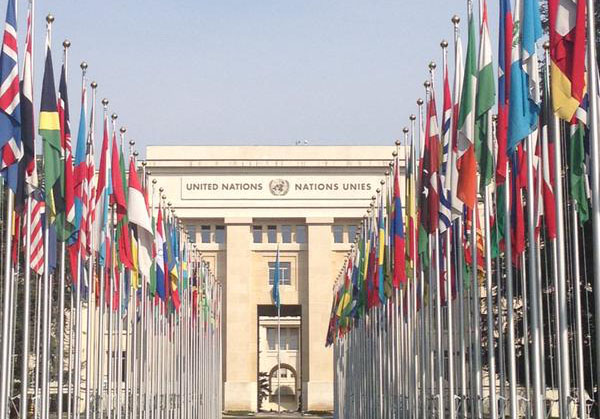
Feb 26, 2018
In a private letter sent to select UN member states, nearly 20 human rights organizations called for clear and concrete actions to denounce China’s current rollback in respect for human rights at the UN Human Rights Council, which opens its session in Geneva today.
The groups highlight five cases of human rights defenders that would benefit from further pressure being brought to bear on the Chinese government. They include:
– Liu Xia, a poet kept under house arrest after the death of her husband, Nobel laureate Liu Xiaobo, in July 2017;
– Wang Quanzhang, a rights lawyer held incommunicado since July 9, 2015;
– Gui Minhai, a Swedish citizen arbitrarily detained in China since he vanished from Thailand in October 2015;
– Tashi Wangchuk, a Tibetan cultural rights and education advocate who has been detained more than two years on charges of inciting separatism; and
– Yu Wensheng, a prominent human rights lawyer disbarred, then arbitrarily detained, in January 2018.
The report of the UN Special Rapporteur on Human Rights Defenders, Mr Michel Forst, to the current Human Rights Council session, describes the dire situation for human rights lawyers and other defenders in China (see paragraphs 277 to 297 of the report.
‘These are just five cases among hundreds, if not more. Taken together, they show that the ferocious crackdown on human rights defenders, including lawyers, that has intensified since President Xi Jinping assumed power continues unabated’, say the authors of the letter.
‘The Human Rights Council should take further steps to show China that undermining key legal protections for freedoms of expression and association and the rights to a fair trial, not to mention disappearing or arbitrarily detaining dissenting voices, is unacceptable behaviour – especially for a would-be “global leader”’.
In March 2016, twelve States presented a historic joint statement focused on the human rights situation in China. Following President Xi’s consolidation of power at the 19th Party Congress in November 2017, a renewed commitment to a joint statement condemning China’s human rights violations has never been more timely.
The organisations urge the governments to call for the release of all arbitrarily detained individuals; condemn the use of ‘residential surveillance in a designated location’, which the UN Committee against Torture has said ‘may amount to incommunicado detention in secret places,’; and promptly grant relevant UN experts unhindered access to all parts of the country.
‘The Council’s credibility is based on its ability to act swiftly and effectively to address human rights situations and to uphold universal values. However, this has come under attack in recent years, particularly from China and likeminded governments’.
‘In this context, it is critical for countries to demonstrate their commitment to the protection and promotion of human rights in China, and to defend the values underlying the international human rights system’.
This year is particularly important, as human rights defenders inside and outside China prepare for the country’s next Universal Periodic Review, scheduled for November 2018.
The letter to governments concludes: ‘For human rights defenders to have the courage to engage in this important process, with all the risks that it entails, it’s critical that they know that they are not alone’.
China – UNHRC Accountability -Advocacy-Open letter – 2018 – ENG (full report in PDF)
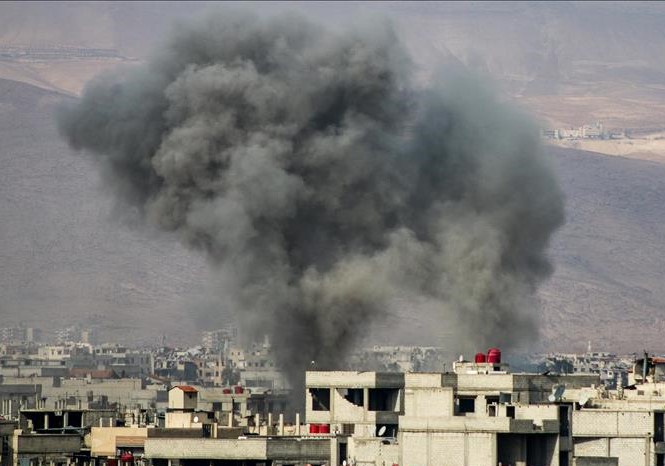
Feb 23, 2018 | News
The ICJ today called on the governments of Syria and Russia to cease all attacks on the civilian population in Eastern Ghouta.
Intentionally directing attacks against the civilian population and civilian objects, including hospitals, constitutes a war crime.
All those responsible for such crimes must be held accountable.
“The UN Security Council is blatantly failing to discharge its primary responsibility for maintaining international peace and security. It’s so paralyzed by division that it cannot even enforce its own resolutions on protecting the civilian population in Syria and ensuring unimpeded humanitarian access,” said Said Benarbia, Director of the ICJ Middle East and North Africa Programme.
“After 7 years of shielding the Syrian regime from accountability for its egregious crimes, including the use of chemical weapons, Russia is joining forces with this regime’s cynical enterprise to murder and starve its own people,” he added.
The air and artillery bombing campaign conducted by the Syrian government, with the backing of Russia, have caused hundreds of victims since Sunday.
The destruction of hospitals and the lack of basic supplies and medicines are making the living conditions of the civilian population extremely dire.
Under international humanitarian law, the Syrian government and its ally Russia have obligations to protect the civilian population and to grant rapid and unimpeded passage to humanitarian relief for the residents of Eastern Ghouta.
The UN Security Council imposed a disarmament plan concerning the Syrian chemical arsenal, yet credible reports of government use of chemical weapons against civilians continued to emerge as late as January and February 2018, in particular in Eastern Ghouta and Saraqeb.
In its last report in October 2017, the OPCW-UN Joint Investigative Mechanism established the responsibility of the Syrian government for the use of chemical weapons.
In the same month, Russia vetoed a resolution to renew the Mechanism’s mandate.
“States must act individually and collectively to stop the escalation of horrors we are witnessing in Eastern Ghouta. They must also ensure, including through any means available in their national legal systems, as well as at the regional and international level, that all those responsible for the war crimes, crimes against humanity and other international crimes committed in Syria, irrespective of their nationality, rank or status, are brought to justice,” Benarbia added.
Contact
Said Benarbia, Director of the ICJ Middle East and North Africa Programme, tel: +41 798783546, e-mail: said.benarbia(a)icj.org
Syria – Ghouta Bombing – News – Webstory – 2018 – ARB (Arabic translation in PDF)
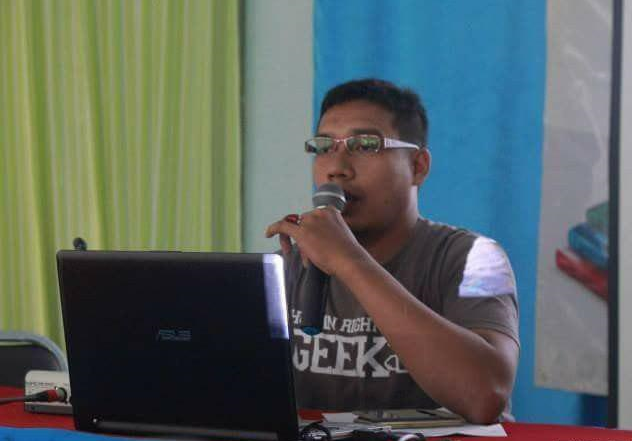
Feb 15, 2018 | News
Thailand should immediately cease misusing criminal and civil defamation laws to legally harass victims, human rights defenders and journalists who raise allegations of torture or other ill-treatment, the ICJ said today.
Yesterday, the Director of the Internal Operations Security Command (ISOC) Region 4, Lt. Gen. Piyawat Nakwanich, reportedly authorized Lt. Col. Seathtasit Kaewkumuang to lodge defamation complaints against Isma-ae Tae, a founder of Patani Human Rights Organization (HAP).
ISOC is responsible for security operations in Thailand’s deep South.
“It is astonishing that after all of the Government’s repeated commitments to address allegations of torture and protect victims and human rights defenders, ISOC is now misusing the justice system to legally harass an alleged victim of torture,” said Kingsley Abbott, the ICJ’s Senior International Legal Adviser for Southeast Asia.
“Thailand should immediately stop these defamation complaints against Isma-ae Tae and ensure an investigation that meets international law and standards is conducted into all allegations of torture or other ill-treatment without delay,” he added.
The accusations relate to a TV program entitled “Policy by People” that aired on the Thai PBS channel on 5 February 2018 in which Isma-ae Tae described being tortured and ill-treated by Thai soldiers when he was a student in Yala, located in Thailand’s restive deep South.
Criminal defamation in Thailand carries a maximum penalty of two years imprisonment and a fine of up to 200,000 Baht (USD $6,300).
The imposition of harsh penalties such as imprisonment or large fines under these laws has the effect of discouraging victims of torture or other ill-treatment from coming forward to seek the remedies and reparations to which they are entitled under international human rights law binding on Thailand, the ICJ said.
The complaints were made against the backdrop of a ruling by the Supreme Administrative Court on 19 October 2016, which ordered the Royal Thai Army and the Defence Ministry to pay 305,000 baht (USD $9,700) compensation to Isma-ae Tae, after it found he was “physically assaulted” during detention and had been illegally detained for nine days – exceeding the limit of seven days permitted under Martial Law Act B.E. 2457 (1914) (Martial Law).
“Even more astonishing is that a superior Thai court has already found that the military physically assaulted Isma-ae Tae and awarded him compensation, which only serves to highlight the injustice of these complaints”, added Abbott.
In 2008, Isma-ae Tae was arrested pursuant to Martial Law and allegedly tortured in order to purportedly extract a confession in relation to a national security case. To date, no perpetrators have been brought to justice.
Contact
Kingsley Abbott, Senior International Legal Adviser, ICJ Asia Pacific Programme, t: +66 94 470 1345, e: kingley.abbott@icj.org
Thailand-Isma-ae Tae defamation case-News-Press releases-2018-ENG (full story with additional information, in PDF)
Thailand-Isma-ae Tae defamation case-News-Press releases-2018-THA (Thai version of full sory, in PDF)
Read also
Thailand: ICJ welcomes decision to end proceedings against human rights defenders who raised allegations of torture
Thailand: ICJ welcomes dropping of complaints against human rights defenders but calls for investigation into torture
Thailand: stop use of defamation charges against human rights defenders seeking accountability for torture
Thailand: immediately withdraw criminal complaints against human rights defenders
Further reading on the Draft Prevention and Suppression of Torture and Enforced Disappearance Act
UN Committee against Torture: ICJ and TLHR’s joint submission on Thailand
Thailand: ICJ, Amnesty advise changes to proposed legislation on torture and enforced disappearances
Thailand: ICJ commemorates international day in support of victims of enforced disappearances
Thailand: pass legislation criminalizing enforced disappearance, torture without further delay









